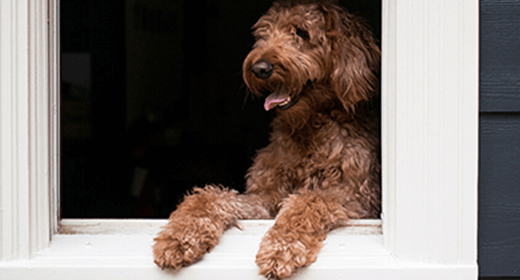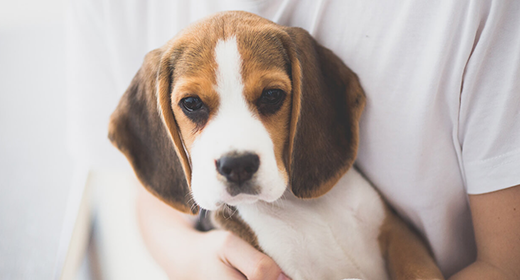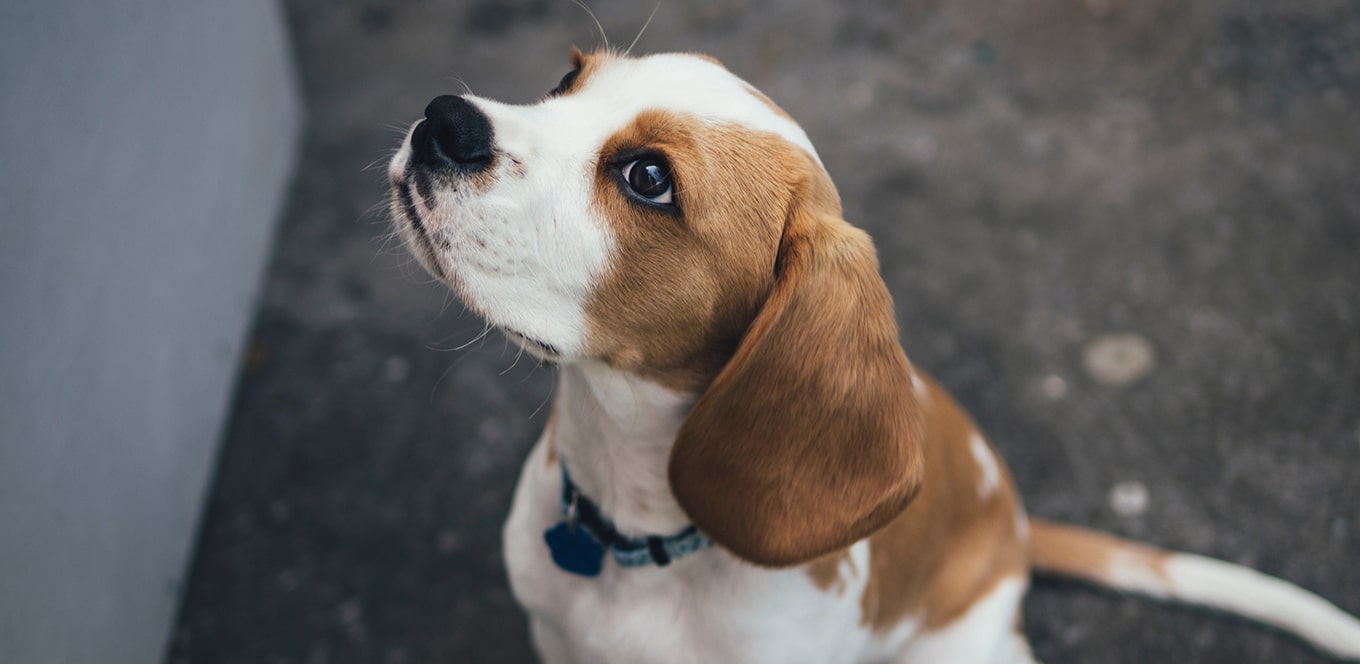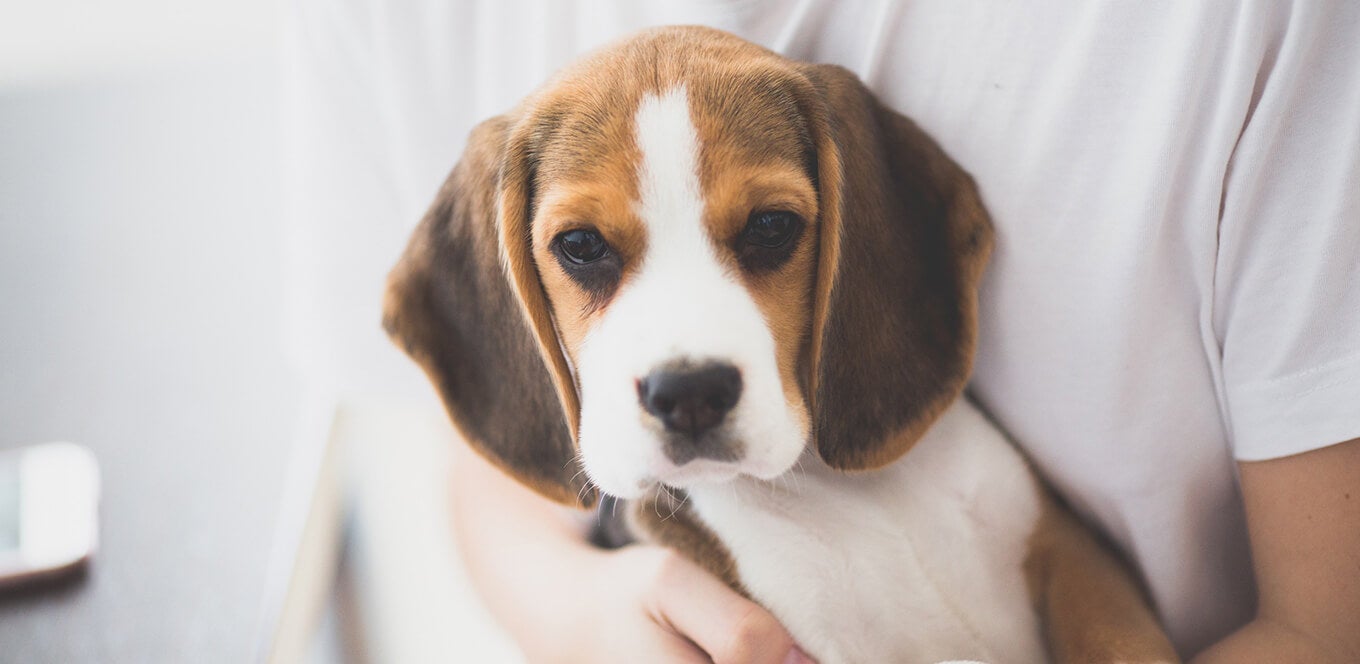

Nutrition and bodyweight management are crucial for the health of a pregnant dog and her puppies. While your dog may not require as many doctor visits as people do during pregnancy, you will still need to understand how to take care of a pregnant dog. This can be achieved by consulting your vet who can evaluate and treat her for both internal and external parasites that could pose a threat to her or her offspring. Pregnancy in a dog is one of the most exciting, but delicate times in the life of a female dog. Hence, providing sufficient care during the early weeks of pregnancy is critical.
It can be difficult to notice anything unusual in your dog during the first few weeks of her pregnancy. However, you can watch out for subtle signs of pregnancy in dogs.
Your pregnant dog will get tired easily and spend more time napping. For dogs that usually have a high energy drive, this decrease in activity should be considered carefully. It may be difficult to spot a decline in energy in dogs who love resting all day. So, if this is the case, pay attention to how quickly she feels exhausted during walks.
You will observe certain changes in your dog's behavior if she is pregnant. For example, she may crave her owner's comfort more frequently. A pregnant dog will spend more time around you, seeking extra attention. At times, she will also prefer solitude and would not want to be bothered. And when given attention, she may appear depressed or even irritated.
Appetite fluctuations are another sign of pregnancy in dogs. She may eat less or perhaps even vomit sometimes, early or midway through the pregnancy. However, she may consume more than normal and be unhappy with her meals. These changes are caused by your dog's shifting hormones.
Your dog’s abdomen will grow in size as the puppies grow. This can be one of the most obvious signs of a dog’s pregnancy, particularly if your dog hasn’t gained weight for any other reason. However, because enlargement of the abdomen happens late in a dog’s pregnancy, and if you detect this sign, it’s time to take her to the clinic.
Proper nutrition for pregnant dogs is important in this period. Therefore, extra caution and care should be given while providing food for pregnant dogs and caring for them.
Pregnancy and nursing are not only responsible for many changes in a dog's body, but for changes in her lifestyle as well. If your dog is pregnant or nursing, pay special attention to her changing nutritional needs as she carries, delivers and nurses her puppies.
Weeks 1 and 2 |
|
Weeks 3 and 4 |
|
| Weeks 5 and 6 |
|
| Weeks 7 and 8 |
|
| Week 9 |
|
Did you know? You must ensure that your female dog is up to date with vaccination before and during pregnancy. After all, it offers protection from rabies and other severe illnesses. So, let’s explore the vaccination needs of a female dog during this delicate, yet beautiful stage of its life.
There are certain vaccines that you should consider giving your dog before she’s pregnant.
The Canine Task Force of the American Animal Hospital Association believes the following canine immunizations to be essential:
In general, normal pet owners will not need to vaccinate a pregnant female dog. If she is up to date with all her vaccinations, there is usually no need to give her an additional booster shot just because she is pregnant. Moreover, even veterinarians discourage vaccinating pregnant dogs.
The nutritional requirement for large-breed dogs differs from that of small-breed dogs. While you would want to shower your pregnant dog with endless foods and treats, it is best to refrain from it. Overfeeding could lead to obesity towards the end of pregnancy. This will increase the risk of difficult labor, which will thereby cause stress to the dog. Hence, during these delicate times, following the feeding guide provided by your vet is a must.
A small breed dog needs more calories per pound than a large breed dog to sufficiently sustain her puppies during pregnancy as well as breastfeeding. The to-be mother dog’s food consumption should be increased by roughly 15% to 25% as she nears the date of delivery.
Small dog breeds should be fed small breed puppy food. Therefore, choose a highly nutritious puppy diet for your dog based on the size of the breed.
If you're planning to breed your female dog, it’s important to assess her body condition well in advance due to the physical demands of pregnancy and nursing, a dog with less-than-ideal health can experience problems.
Be sure to feed the proper amounts of a complete and balanced diet. This will support the mother's healthy weight and body condition before breeding and help maintain her health and that of her babies throughout pregnancy and lactation.
The gestation period for dogs is nine weeks. Pregnant dogs gain weight only slightly until about the sixth week, and then gain weight rapidly.
The energy requirements of pregnant dogs are reflected in the pattern of weight gain. Pregnant dogs will need to consume 25% to 50% more than their normal food intake by the end of pregnancy, but energy requirements do not increase until about the sixth week.
The best diet for pregnant and nursing dogs is a high-quality, nutrient-dense pet food formulated for all life stages. Although puppy diets are generally recommended for pregnant or nursing dogs, large-breed puppy formulas may not be appropriate for this use due to their adjusted energy and mineral content.
Raw foods are not recommended for nursing or pregnant dogs. Most dogs can get by on high-quality dog food alone, so unless your veterinarian suggests otherwise, you should avoid giving your dog any additional vitamins or supplements.
A good option is to give your pregnant dog IAMS™ PROACTIVE HEALTH™ Mother and Baby dog food. It supports the mother’s gestation and milk production for healthy puppy development while also boosting your puppy's training capacity with vital DHA for healthy brain development, making its first year of life a pleasant one.
Pregnant dogs lose weight after giving birth, but their nutritional needs increase dramatically. Depending on litter size, nursing dogs might need two to three times their normal food requirement to nourish their pups. Be sure your nursing mom has plenty of water, so she can generate the milk volume she needs to feed the litter.
To help your nursing dog get enough nutrition, you can try several tactics:
By four to five weeks after birth, most puppies start showing an interest in their mother’s food. Gradually, the puppies will begin eating more solid food and nursing less. At the same time, the nursing mother will usually begin eating less. Most puppies are completely weaned around age 7 to 8 weeks. By this time, the mother's energy requirement is back to normal, and she should be eating her normal pre-pregnancy diet.
Your pregnant dog must be taken to the vet multiple times during her pregnancy. To begin with, schedule a prenatal appointment two to three weeks after mating. And later on, go for vet examination three weeks before whelping, especially to confirm that the mama dog and puppies are in good health. You can visit your veterinarian at regular intervals for your pooch’s well-being.
Female dogs need special care during pregnancy. And since you have reached the end of this article, you probably know your responsibilities now. From feeding them right to providing sufficient exercise, as a dog parent, you must ensure that your pet and her babies are in the pink of health.
If you're looking for the perfect dog for you, try our Dog Breed Selector today and enjoy a lifetime of tail-wagging joy.
A pregnant dog should be switched to a higher-calorie diet (when they are already a month into pregnancy). The food should also have 22% protein and 1600 kcal of digestible calories per pound.
A dog can be pregnant for up to 70 days. However, in most cases, puppies arrive within 63 to 65 days of conception.
If your dog is in active labor, she would most likely refuse to eat. The labor process can be exhausting, resulting in stomach trouble, pacing, vomiting, and uneasiness. As a result, feeding her during this period is ineffective. If your dog eats soon before labor, she may vomit up the meal.
Your dog can only become pregnant when she is in heat, which occurs once or twice annually depending on the breed. When dogs are about 6 months old, they go into heat for the first time. The entire heating cycle takes about three weeks, and it is during this cycle that your dog can become pregnant.
Mother dogs may miss their pups if their specific circumstances are not taken into account. Therefore, plan everything carefully before breeding her to a male to ensure that the separation of her litter is not all at once.
Yes, your dog can get pregnant again at any time after she has given birth. However, it will depend on when she goes into heat again. Thus, it is best advised to keep the male dogs away from her so that insemination doesn't happen accidentally.
Here are a few tips on caring for a pregnant dog:


As a new puppy parent, you may feel overwhelmed by the sheer amount of information available on properly feeding your furry friend. But don't worry – we are here to help! In this blog post, we will share tips and tricks on puppy feeding, so your canine companion gets all the nourishment it needs to grow and thrive.
First and foremost, it's important to follow a consistent feeding schedule for puppies. This will help them get used to regular meals and prevent them from developing bad habits like begging for food. It's also essential to choose a high-quality puppy food formulated specifically for their age and size. Look for options containing real, wholesome ingredients and avoid anything packed with fillers or additives.
Overfeeding your puppy can lead to obesity and other health issues. It's also important to pay attention to portion sizes. And if you need help with how much to feed a puppy, feel free to ask your veterinarian for guidance.
Puppies have specific nutritional needs that change as they grow and develop. It is crucial to ensure they get the right amount of food at the right time. Our puppy feeding guide is designed to help you determine the appropriate serving size for your puppy based on age and weight. Following these guidelines ensures that your puppy gets the nutrition it needs to thrive and stay healthy.
[Puppy Feeding Chart]
Puppies are energetic and adorable little creatures, but they also require proper nutrition to grow and develop properly. So, how much should you feed a puppy?
Firstly, it's important to consider the size and breed of your puppy. Larger breeds will need more food, while smaller breeds will need less. It's also important to consider the puppy's age. Puppies under 12 weeks of age should be fed four times a day, while puppies over 12 weeks of age should be fed three times a day.
Regarding the amount of food, it's best to follow the guidelines on your puppy's food label. These guidelines are based on the puppy's weight and age and will ensure that your puppy is getting the right amount of nutrients. It's also essential to choose a high-quality puppy food developed specifically for puppies, as this will provide all the nutrients you puppy needs.
It's also important to remember that puppies have small stomachs and may need to eat smaller meals more frequently. If your puppy seems hungry between meals, you can offer them a small, healthy snack, such as a piece of cooked chicken or a small amount of carrot.
In summary, feeding your puppy the right amount of food at the correct time is important. Follow the guidelines on your puppy's food label and choose high-quality puppy food to ensure that your furry friend gets the nutrients required to grow into a healthy dog. Remember to consider your puppy's size and age, and offer small, healthy snacks as needed. Your puppy will grow into a healthy and happy dog with proper feeding.
The general rule of thumb is to switch your puppy to adult food when they reach around 80% of its expected adult size. This usually occurs when it is 12 to 18 months old, depending on the breed. Smaller breeds tend to reach adult size faster, while larger breeds may take longer.
To determine when your puppy is ready for the switch, it's important to pay attention to their body condition and weight. If your puppy is still growing rapidly and has a lot of energy, they are probably still being prepared for adult food. On the other hand, if they are starting to slowdown in growth and seem to be reaching their adult size, it's time to make the switch.
It's also a good idea to consult with your veterinarian for advice on when to switch your puppy to adult food. They can help you determine the best time based on your puppy's specific needs and growth rate.
In general, choosing high-quality adult food that is appropriate for your puppy's size and breed is imperative. Look for a formula rich in proteins, vitamins, and minerals to support their overall health and development. With careful planning and attention, you can ensure that your puppy grows into a healthy, happy adult dog.

